That market was so familiar that I could not remember anything, then one day it disappeared like in the Covid-19 pandemic, then I felt panic. That was the Xom Moi market of 4 generations of my family. The market that started in the 50s was just a few small stalls right at the entrance of my maternal and paternal grandmother's house, hugging the intersection of Mac Dinh Chi and Nguyen Trai streets (now Vo Tru). The market had a sweet soup stall of a seventeen-year-old girl, because the song Co Hang Nuoc by musician Vu Minh was popular at that time, someone hand-copied and pasted it right in the stall and left the market to the side to the music. This anecdote was told by my mother - an insider. A few years later, the market was built, spacious and complete, more than a hundred meters away on Nguyen Hoang street (now Ngo Gia Tu street), which was originally a vacant lot that was newly planned and built at the same time as the population explosion, and has existed until now with the name from the time of its founding: Xom Moi Market.
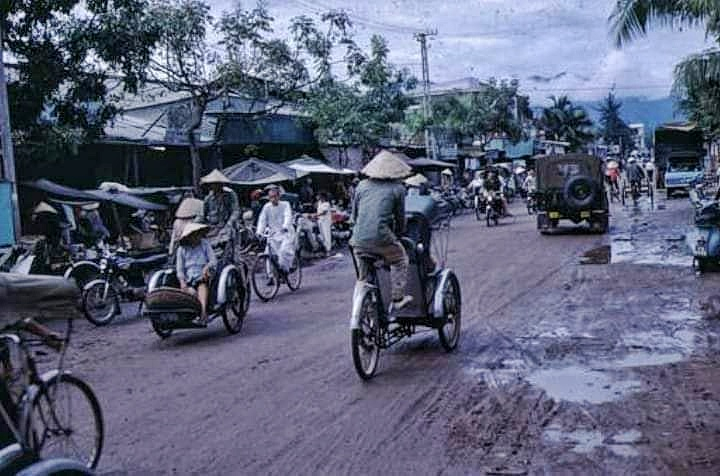 |
| Xom Moi Market in the past. Photo: Internet |
Growing up, I only saw my mother's monotonous housewife life as most beautiful when she prepared to go to the market every day, changing into a silk ao ba ba, applying a little lipstick and powder, putting on clogs and carrying a plastic basket. Like the residents who grew up and lived around her, she was as familiar with the market as her own home. Not being able to go to the market, visit the market, watch the market, and chat with the market every day was a misfortune. That was the source of joy in life, not the way of going to the market for one meal and eating for ten days like now, but still feeling tired, difficult, and bored. The day the whole family mobilized and forced her to stop going to the market was like uprooting a tree from the outside and putting it in a bonsai pot.
Those are the people who go to the market, but those who depend on the market, who live on the market stalls, who breathe the market air, must have many times more worries. There are stalls that are passed down from mother to son, customers who come to buy and talk are like meeting old friends. I am a coastal person who is addicted to fish sauce, following a familiar stall that sells all kinds of fish sauce, the famous delicious fish sauce in this market. The woman selling fish sauce said that this fish sauce stall was sold by her husband's grandmother when the market first opened, then passed down to her mother-in-law, and when she became a daughter-in-law, it was passed down to her, now it must have been more than 60 years of her life.
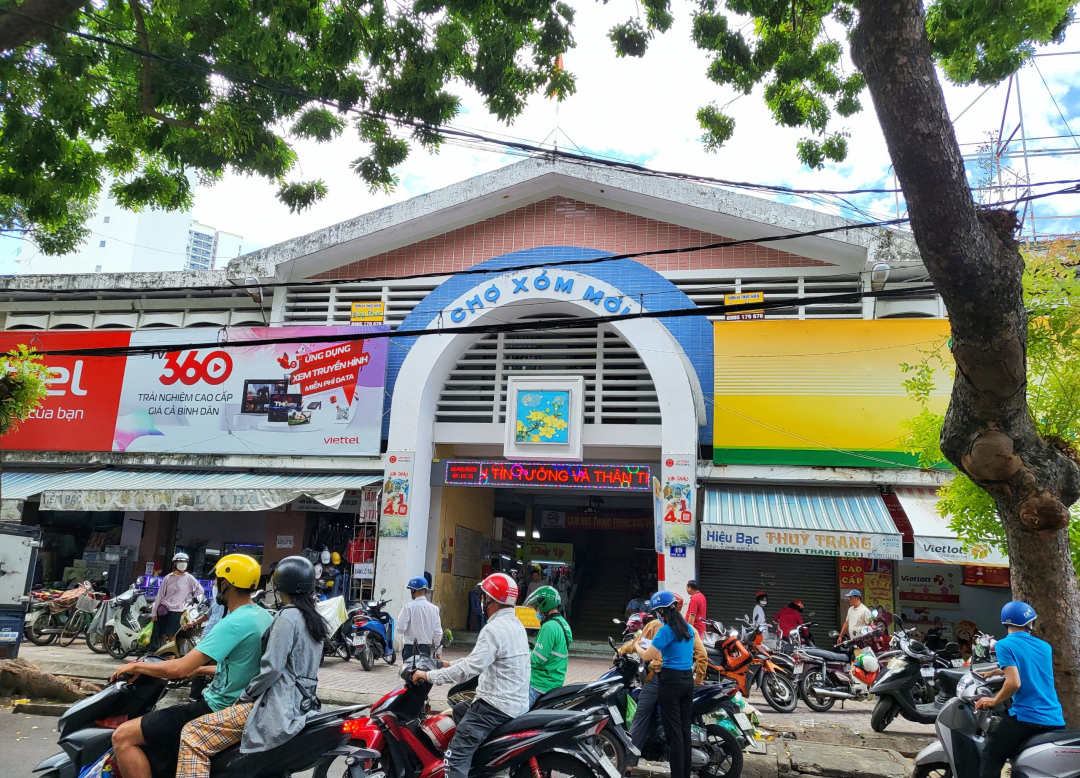 |
| Xom Moi Market today. |
The market survived the subsidy period, sheltering many lives. Back then, there were still rows of houses like small, hastily built temporary tents, crowded and dark and dirty behind the main shops on the street, facing the market. The residents there lived like the ebb and flow of the water following each market day. They could carry goods for hire, carry side items, fish for hire, carry water to fill basins for cleaning... When the market was planned to be rebuilt, this temporary residential area had to be cleared.
The all-day food and beverage industry at Xom Moi Market was once famous, with workers bringing their bicycles to eat a bowl of noodles, a bowl of porridge, and a cup of coffee to chat. Then, no one remembered these legendary food stalls anymore, probably since the food stalls were moved to a separate floor.
After going East and West, I finally returned to Xom Moi market. Now, no one challenges me to bargain anymore, although sometimes being able to haggle and bargain is an indispensable element in the place of buying and selling. Wandering between stalls that are closed for many reasons, I just hope that the old markets will never disappear because of the pandemic, because of online shopping platforms, because of shiny shopping malls...
AI DUY
Source link











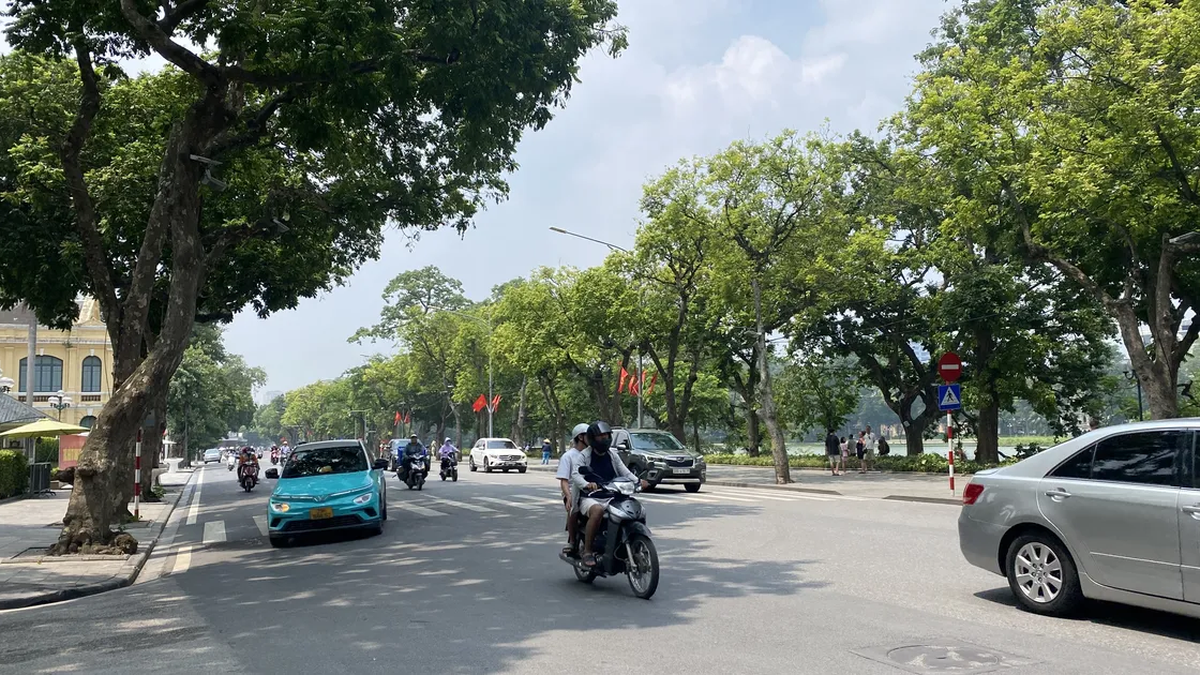












































![[Maritime News] Container shipping faces overcapacity that will last until 2028](https://vphoto.vietnam.vn/thumb/402x226/vietnam/resource/IMAGE/2025/7/30/6d35cbc6b0f643fd97f8aa2e9bc87aea)












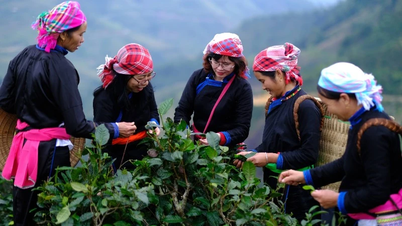

























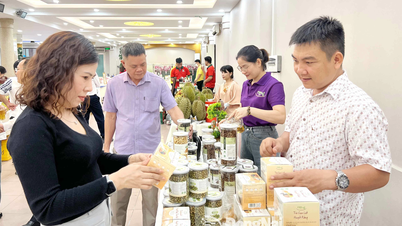






Comment (0)